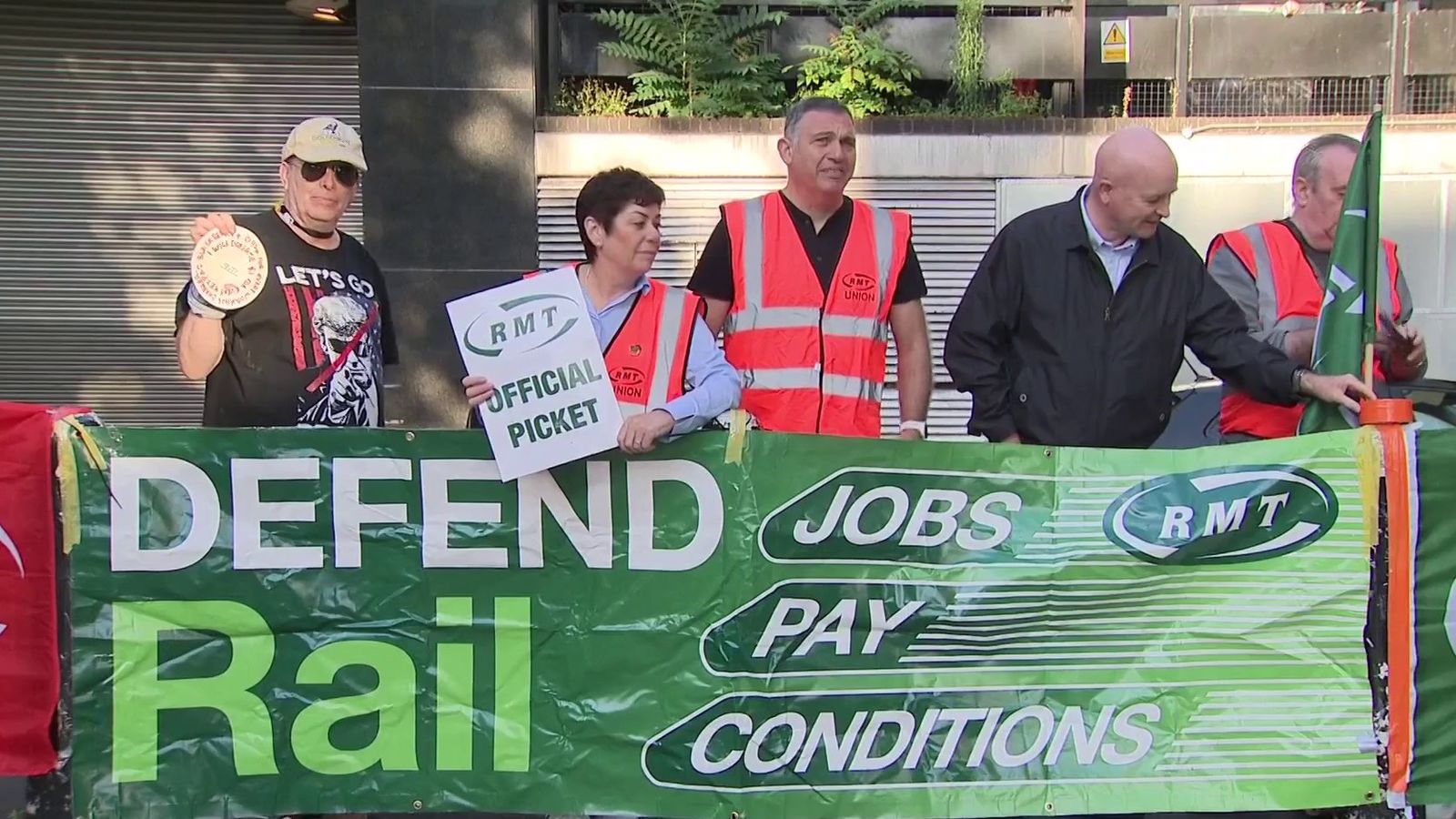Rail strikes planned for later this week will go ahead as union members have voted to reject an offer from Network Rail.
Planned work stoppages by members of the RMT union will take place on 13, 14 and 16 and 17 December.
More strikes are planned from 6pm on 24 to 5.59am on 27 December.
The offer had been expected to be rejected as members had been recommended to do so by their union.
Nearly two thirds (63.6%) voted to reject the offer, which Mick Lynch, RMT secretary general, described as “a huge rejection of Network Rail’s substandard offer”.
Turnout was 83% in the vote that took place via electronic referendum from 5 December to midday on Monday.
Responding to the announcement, Network Rail’s chief executive said RMT leadership needs to think long and hard about what to do next.
Rail strikes: Your refund rights explained if your travel is disrupted due to industrial action
RMT warned not to ‘hold the country to ransom’ and accept ‘generous’ pay offer after union adds more Christmas strikes
Christmas rail strikes to go ahead as union rejects offer from operators – as firefighters could become latest to walk out over pay
“Further strike action will cause further misery for the rail industry and for their members who will lose pay”, Andrew Haines said.
“This news is especially frustrating, given that we learnt today that colleagues represented by Unite union have accepted the very same offer put to RMT members. The RMT are the outliers here, they need to stop playing politics and work with us to bring this dispute to an end.”
“There is clearly a significant number of Network Rail colleagues who want this deal, but are caught up by these needless strikes and collective bargaining. Our offer, which is worth over 9%, with a guarantee of compulsory redundancies and no changes to anyone’s terms and conditions remains on the table.
“Our railway still faces a real financial crisis and because of that, we will continue with the consultation around the implementation of the maintenance reforms.”
The company said it would “work closely with operators to run as many services as possible” but asked passengers to only travel if absolutely necessary.






















